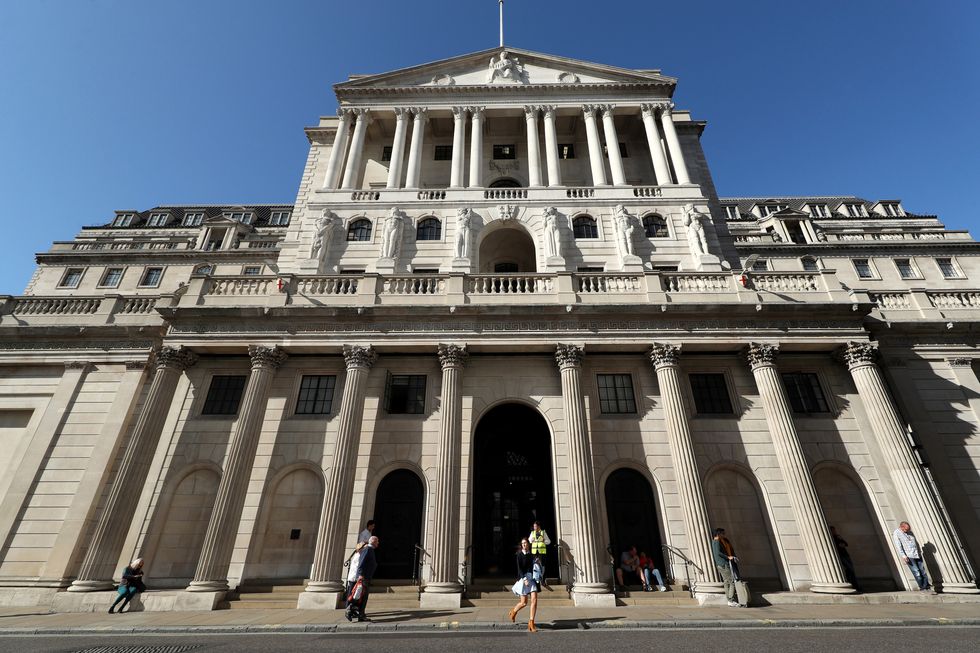Inflation is expected to tick up in the year to July 2024, just months after it reached the Bank of England’s two per cent target.
The forecasted increase would be a blow for the new Labour Government, who entered Government on July 5.
A survey of 54 economic forecasters by Bloomberg suggests the headline figure of inflation could climb back up to 2.6 per cent by the end of the year, before fading back to the target level in 2026.
Economists have predicted July’s inflation figure could come in at 2.3 per cent – up from two per cent – ahead of further increases.
“The July figure, about to be reported, could be the month where inflation starts to edge higher, because the pace of declines in utility prices is much weaker than a year ago,” Steve Clayton, head of equity funds at Hargreaves Lansdown said.
“That could let stubbornly persistent services inflation make more impact on the overall number.”

The Bank of England cut the base rate earlier this month
PA
GB News spoke to Sarah Coles, head of personal finance at Hargreaves Lansdown, who explained the substantial cut in energy prices last year, followed by a smaller reduction this year, is set to push inflation up.
“The big driver is energy prices, which seems peculiar at a time when the energy price cap is actually being cut,” she said.
“However, in July last year there was a massive cut in the price cap, and this year the cut is smaller.
“When you replace a big price cut with a smaller one, it puts inflation up.
“This is tempered by other price rises continuing to moderate – like food – which means we won’t get a big move upwards.”
Ofgem’s energy price cap fell by 17 per cent to £2,074 per year (for a typical household on a dual duel tariff, paying by direct debit) on July 1, 2023.
The price cap had previously been subsidised by the energy price guarantee of £2,500. The price cap is a limit on unit rates and standing charges, meaning people who use more could pay more than this.
From July 1, 2024, the energy price cap for a typical household that uses gas and electricity and pays by Direct Debit was reduced by seven per cent from the previous quarter to £1,568 per year.
Earlier this month, the Bank of England cut the base rate for the first time in four and a half years, after inflation held at two per cent for two consecutive months.
Coles said the expected rise in inflation “is unlikely to frighten the horses” so shouldn’t have an impact on the Bank of England’s rate-setters “just yet”.
MORE FROM GBN MEMBERSHIP:
She added: “The Bank of England has issued plenty of warnings that a rise in inflation is on the way. It largely comes down to energy prices. Every July, the energy price cap changes.
“This July it fell, but last July it fell further. The mathematical impact of replacing a bigger fall last year with a smaller fall this year means inflation will rise – even when prices are falling.
“The Bank has already said it’s not worried about this. It’s less focused on energy price movements, and more interested in secondary effects.
“If core inflation, wage inflation and services inflation are reasonably under control, we can still expect another cut this year.”